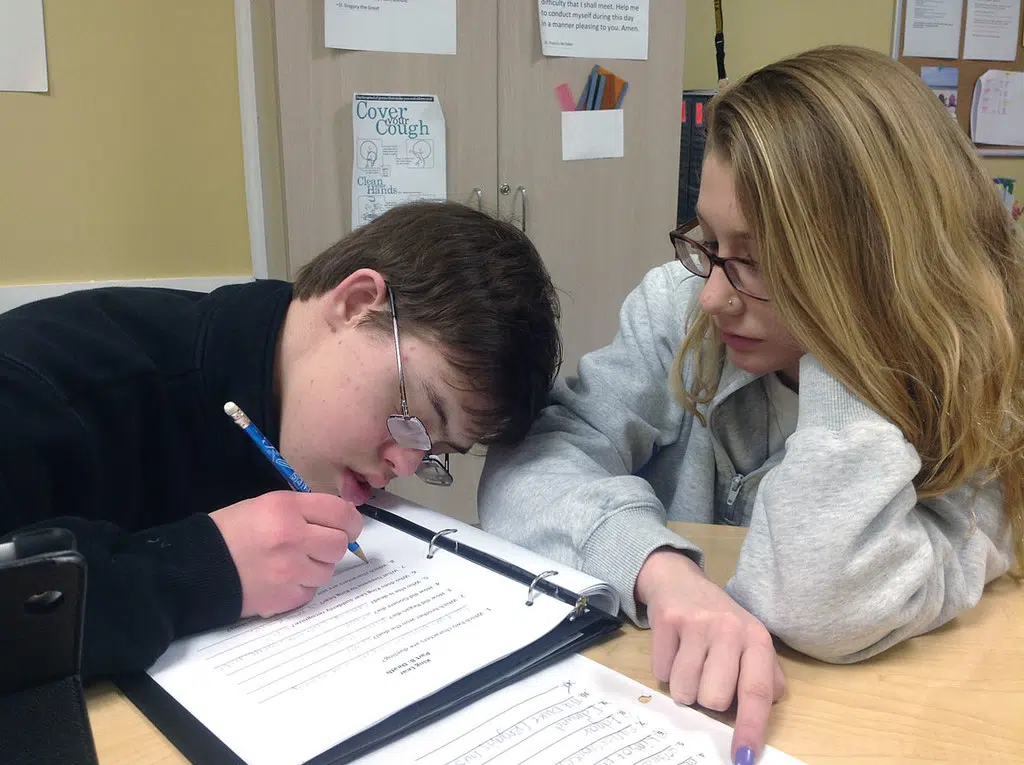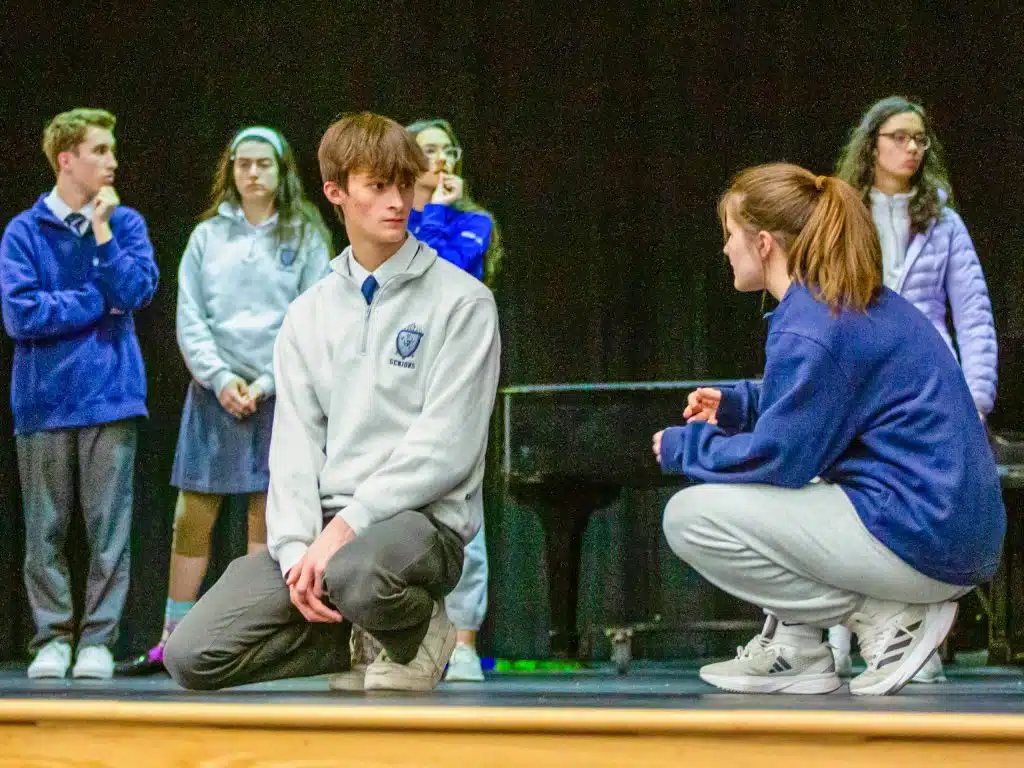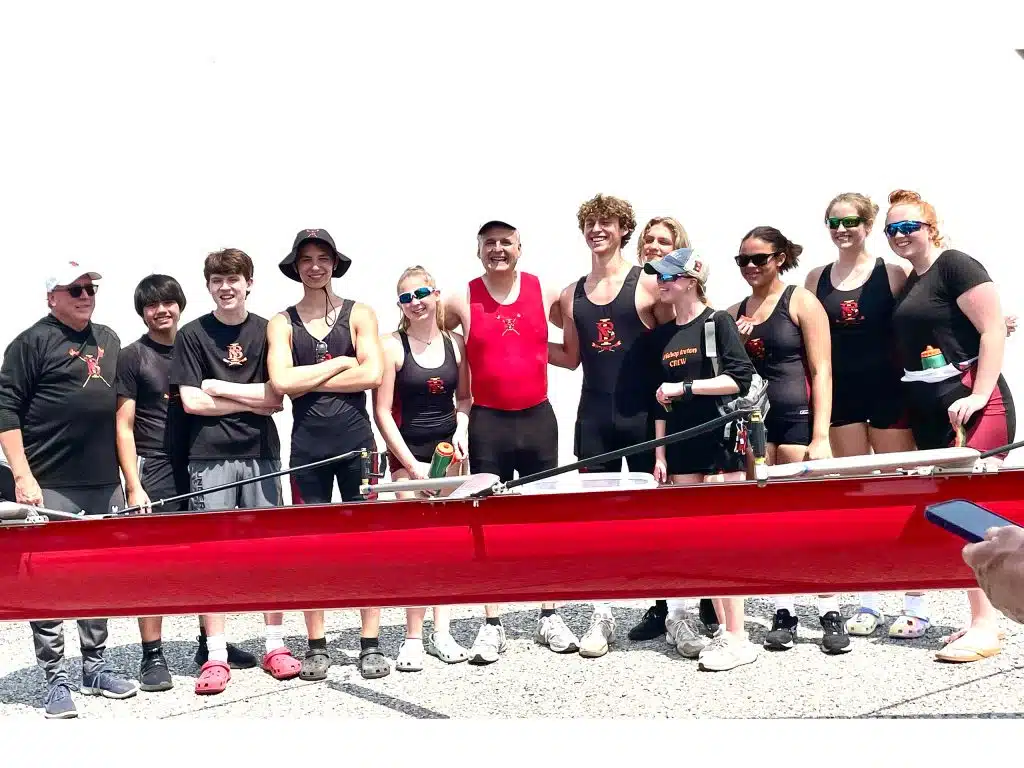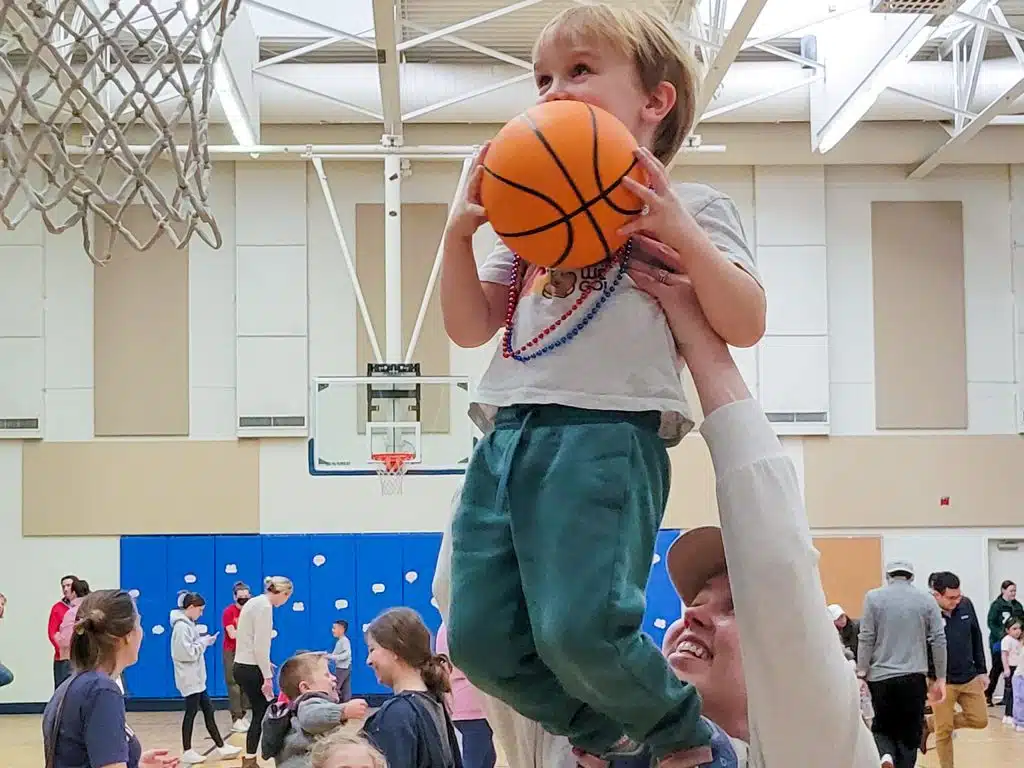Bishop O’Connell High School in Arlington, Holy Spirit School in Annandale and St. Charles Early Childhood Education Center in Arlington will begin the school year with new options for students with intellectual disabilities. The schools join three others with established programs – Paul VI Catholic High School in Fairfax, Saint John Paul the Great Catholic High School in Dumfries and St. Mark School in Vienna – in working with students who need extra help.
According to Diane Elliott, special services coordinator for diocesan Catholic schools, the decision to adopt these kinds of programs and services happens at the local level based on a school’s space availability, human and financial resources, and mission.
“The goal is to be accepting of all those for whom we can provide an education and to provide a Catholic education to those students whose parents desire a Catholic education for their children,” said Elliott.
“It can’t just be added like a P.E. program or class; it takes a lot of preparation and consideration,” said Adam Bigbee, assistant principal for academics at Saint John Paul the Great. “You have to not only prepare the teachers and the families but also the rest of the community.”
According to The Arc – an advocacy group for people with intellectual and developmental disabilities – an intellectual disability is characterized as a “below-average cognitive ability with an I.Q. (score) between 70-75 or below, significant limitations in adaptive behaviors and the onset of the disability (occurring) before age 18.”
The Individuals with Disabilities Education Improvement Act identifies some of the following as qualifying disabilities often seen in Catholic schools: autism, emotional disability, hearing or visual impairment, orthopaedic impairment, speech or language impairment and multiple disabilities.
Although each of these six schools offer programs and each operates differently, they all want these children to feel included and to learn alongside their peers as much as possible.
“It’s the culture of inclusion and acceptance that we really celebrate here,” said Paul VI Options Director Chris Desmarais. “That’s from the cafeteria workers, to the special educator inside the self-contained classroom, to the inclusion teachers who are learning how to deliver information to different kinds of learners because they have the opportunity to include students with an intellectual disability into their class. There’s a significant amount of bonding that goes on between the students in the Options program but also between them and their peer mentors. It is a really beautiful thing.”
In 1998, Paul VI was the first school to offer an Options program in the diocese. Desmarais began teaching at Paul VI in 2003 as an Options teacher, then went on to become the Options director. Her daughter Mary attended Paul VI and served the Options program as a peer mentor. Mary earned her master’s in special education and will be O’Connell’s first special education teacher this year.
Called “expanded services” at O’Connell, the program will operate similar to Options, according to Susan Rinaldi, program director. The emphasis will be on letting students know they are O’Connell students first and foremost.
“Instead of something a student is in, it is a service they receive as an O’Connell student,” said Rinaldi.
St. Charles will be the first preschool in the nation to actively welcome students with intellectual disabilities, according to the National Catholic Board on Full Inclusion.
“We are not segregating or distinguishing the special needs students from our general population in any way,” said Director Amy Fry. “Being a preschool, this is easier for us to accomplish than it would be with older students.”
Each school has the ability to shape their programs in a way that benefits their students, faculty and families the most.
“I would say to any parent with a (child who has) intellectual disabilities or who has some special learning need, that one model is not necessarily better than the other,” said Desmarais. “You have to look at the individual needs of the students and where you think they’re going to learn and grow in grace and wisdom. What’s going to bring out the best in that kid, what program or service will work for that student? So we’re blessed that the diocese is now expanding its services to serve this population.”



